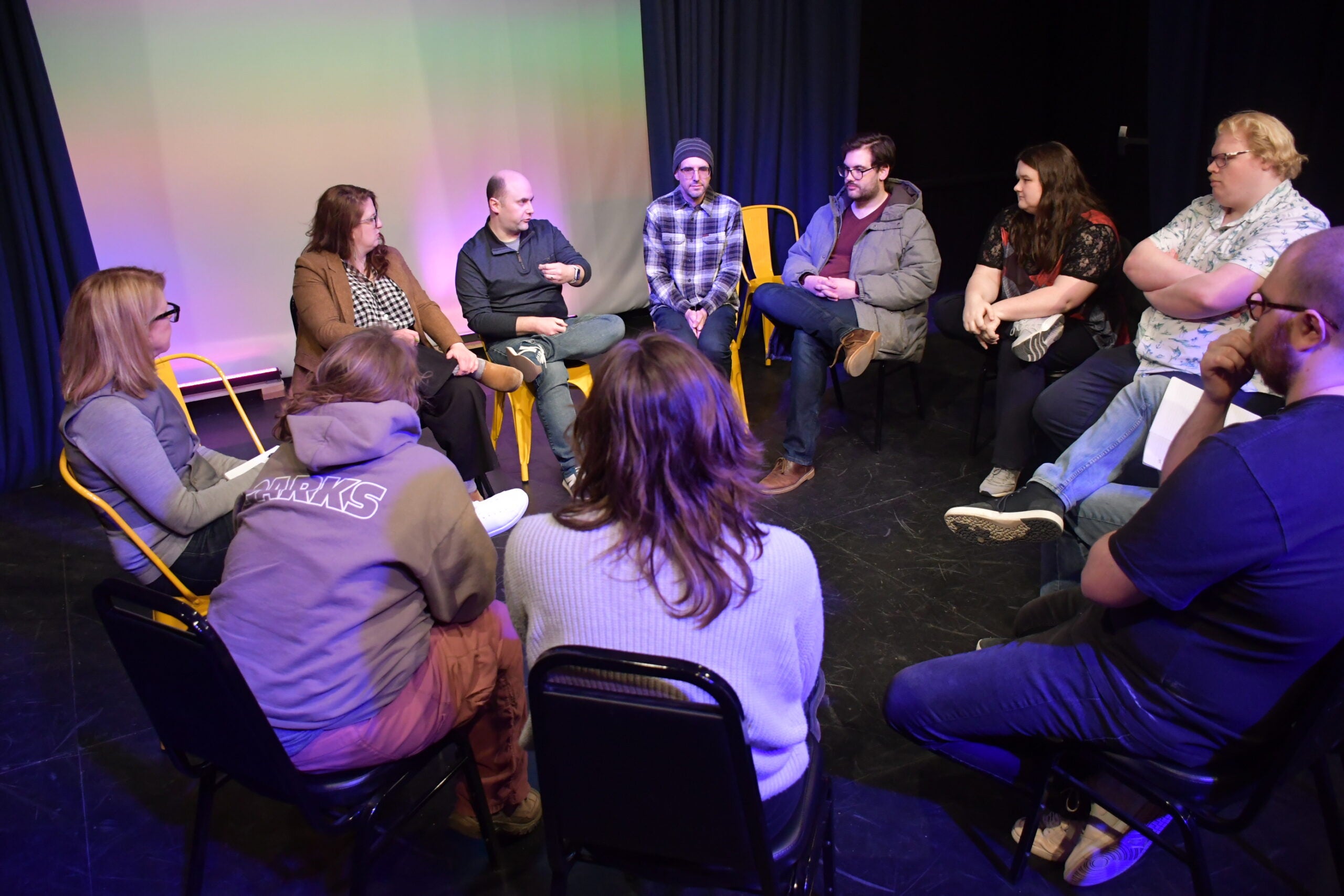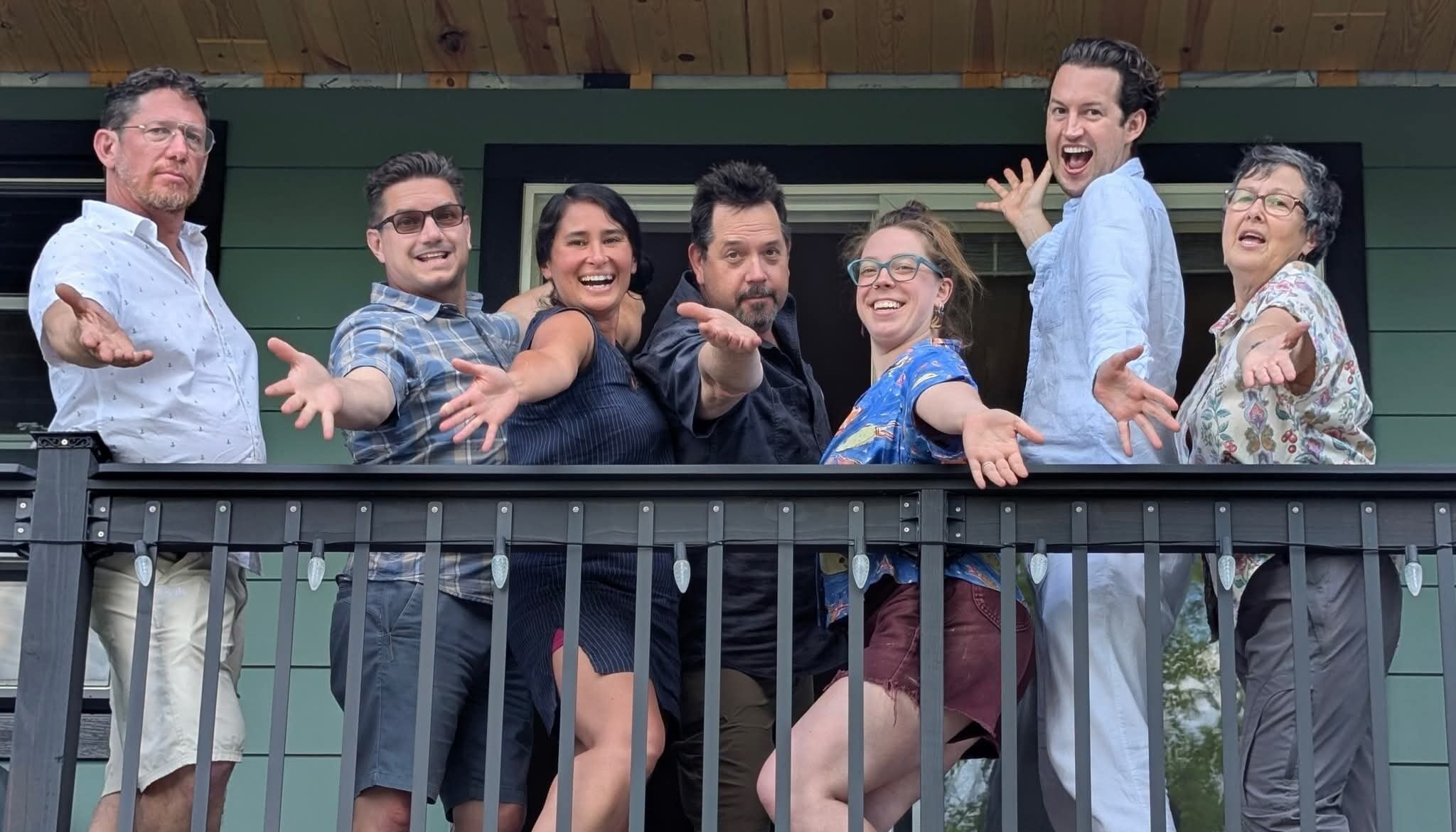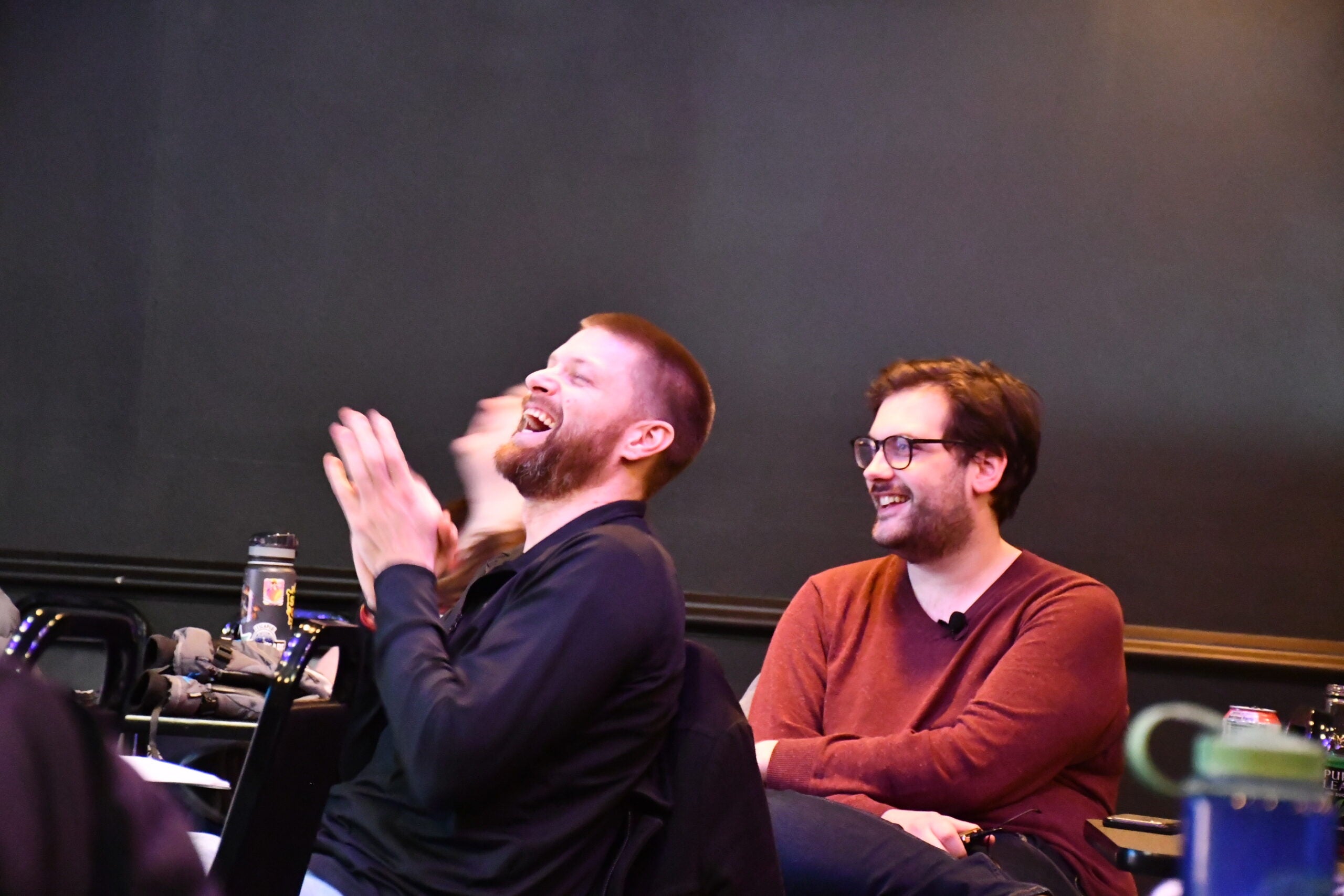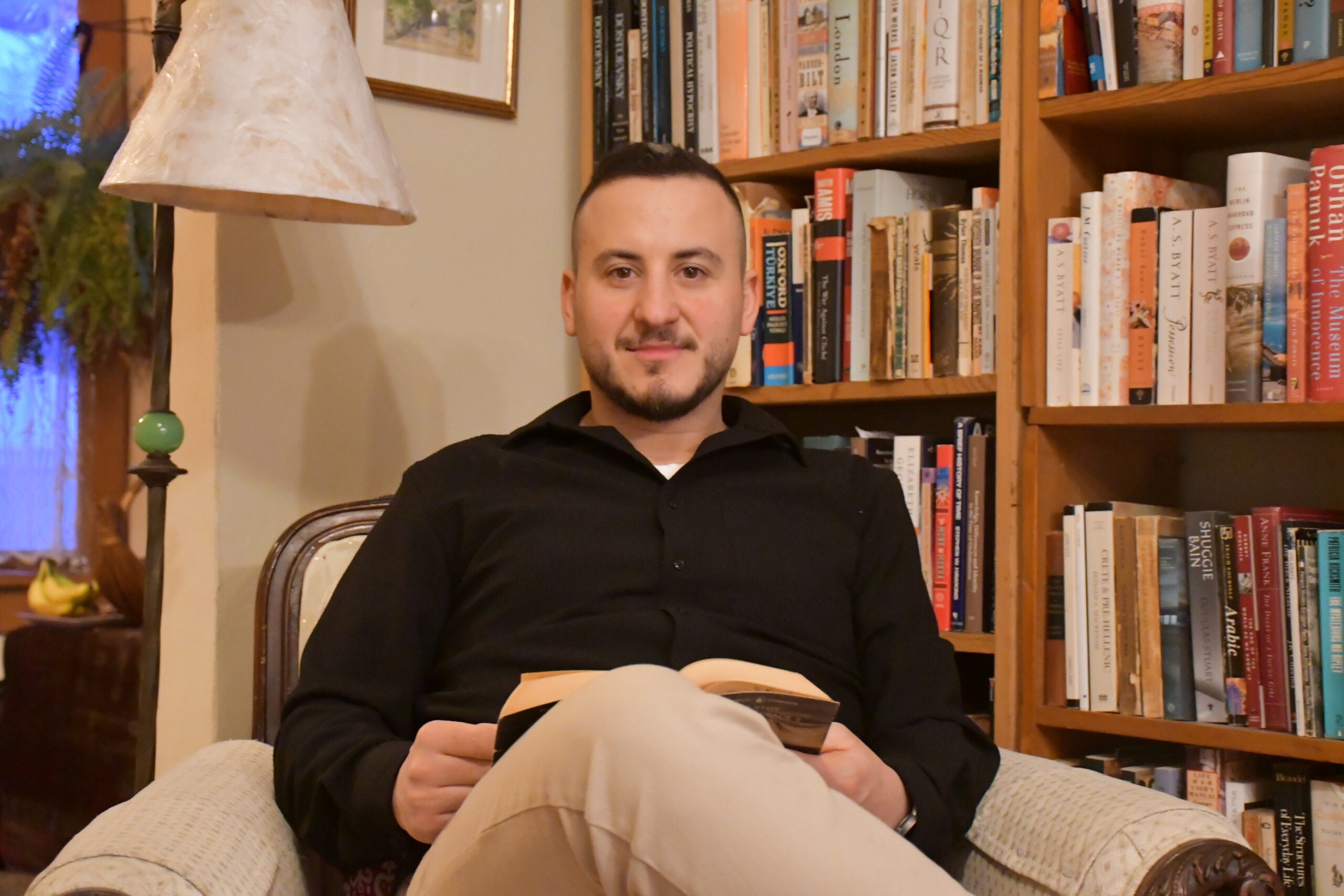This spring, students are learning and practicing the tenets of improv on stage at the Interchange Theater Co-op in Milwaukee.
There’s the foundational “yes, and…” riff that performers use to build a scene. And there’s “the sweep,” or a signal to end scene after the payoff.
“Think of it like an orgasm,” Vince Figueroa, education director of the Interchange, told the students. “You are building up this tension in the scene and you have to sweep. Otherwise, you lose it.”
News with a little more humanity
WPR’s “Wisconsin Today” newsletter keeps you connected to the state you love without feeling overwhelmed. No paywall. No agenda. No corporate filter.
The Interchange is in Milwaukee’s Westown neighborhood at one of the oldest churches in the city. It has cream city brick and a 200-foot tower. The theater started in 2021 and is the first improv co-op in the city.
The co-op is working to diversify the art form, which has traditionally been made up of white performers, with a new scholarship.
“I don’t think I performed with comedians of color until college,” Mia Serafina, the director of community and culture at the Interchange, told WPR’s “Wisconsin Today.”
Serafina performed a show with an all-Hispanic cast called HisPANIC At The WISCO.
“I’m on stage with other Hispanic comedians, and it was such a difference that I didn’t know how badly I needed it,” she said. “I made a Selena Yolanda reference and the audience got it. It’s another level of comfort that I had never been used to.”
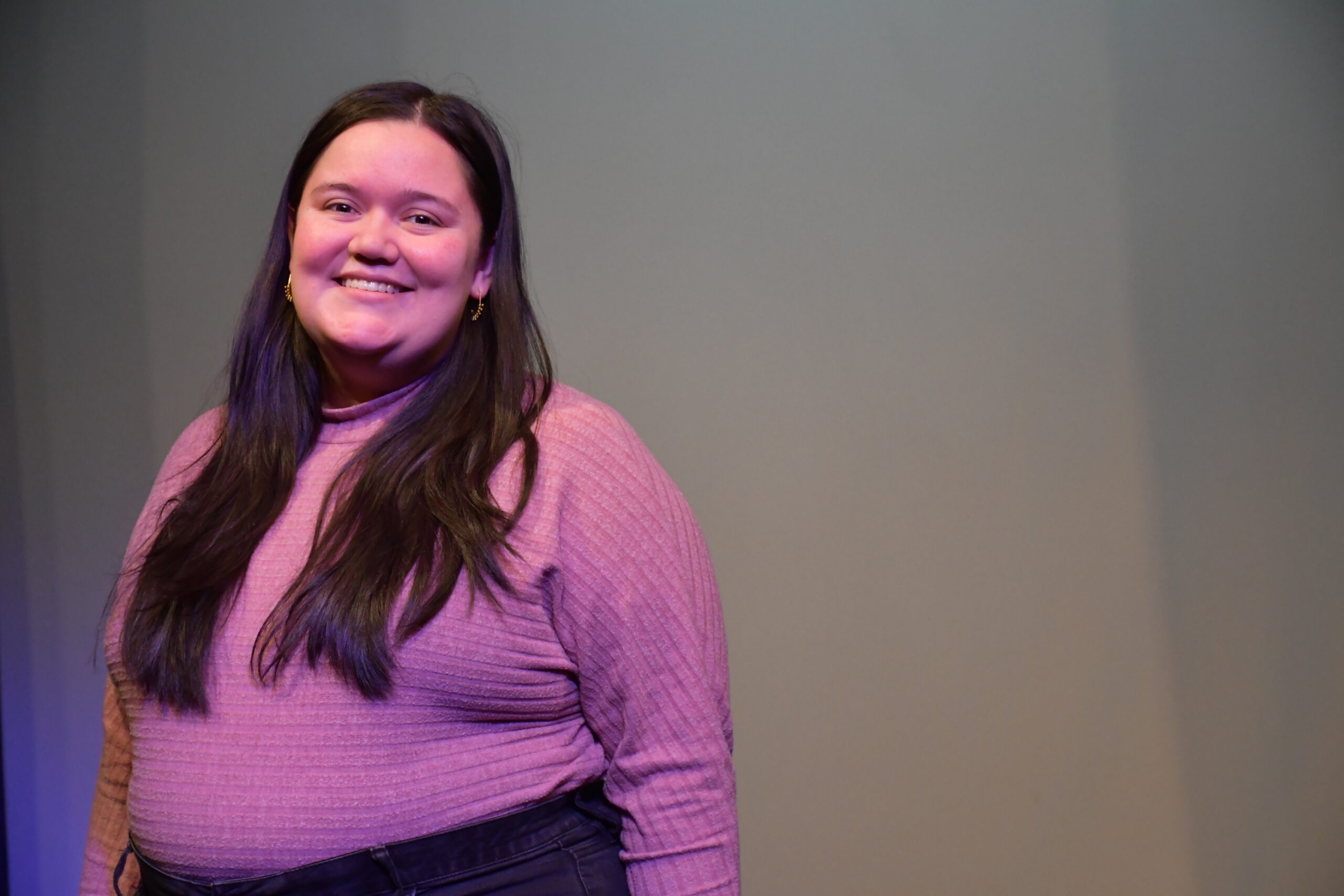
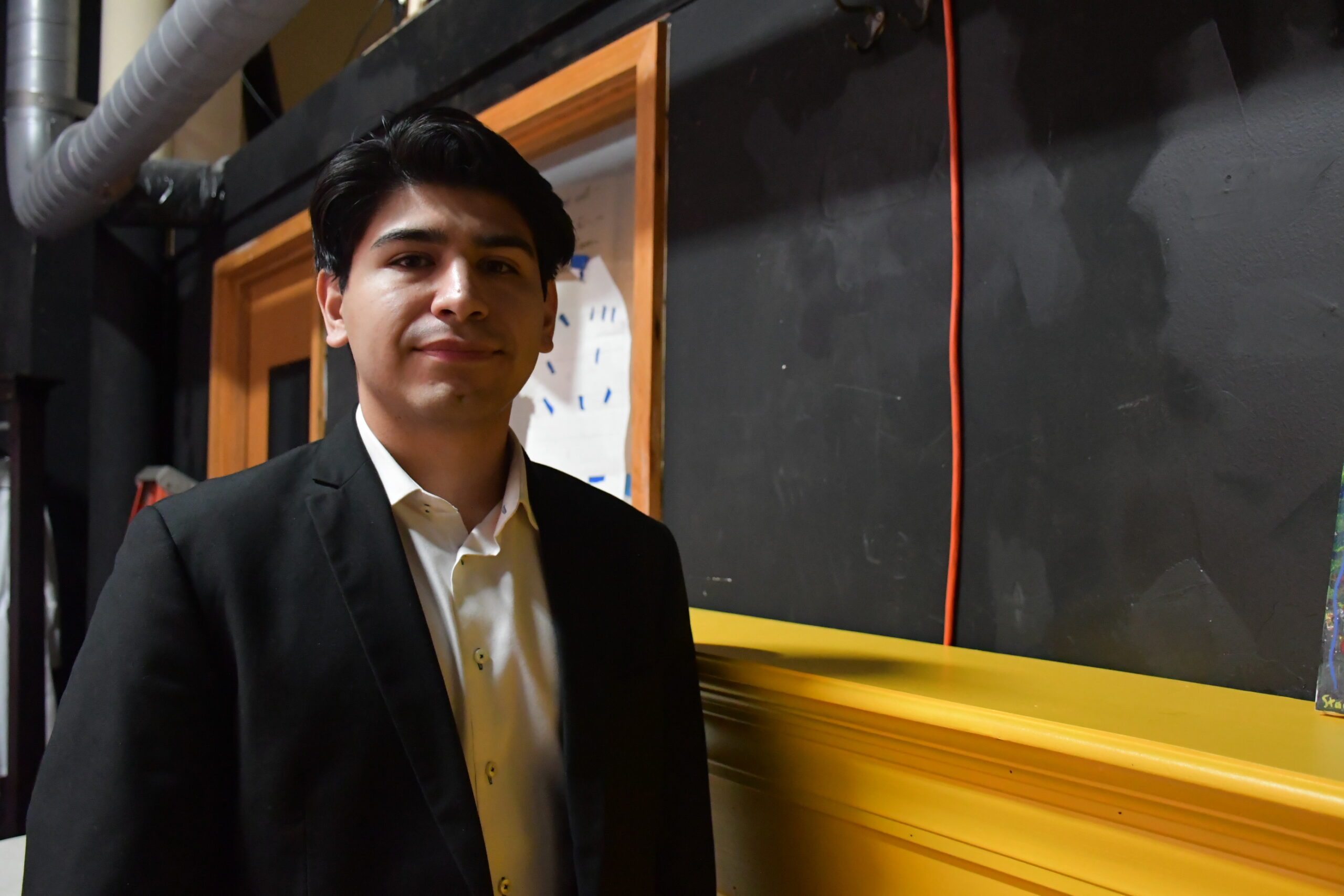
The experience inspired Serafina to start the New Voices scholarship, which covers the class costs for people of color, people with disabilities and members of the LGBTQ+ community.
Serafina said there’s freedom in performing with people like her. She can make cultural references and create characters that are similar to her Chilean abuela who once met Che Guevea at a plaza but never told anyone until an Easter brunch years later.
Performances like that allow her to play around with language.
“We were in a scene and somebody’s like, oh my god, that person just gave me a new nickname, ‘pendejo,’” she said, referring to a vulgar Spanish word similar to “idiot.” “It’s just those little moments that privately make us really crack up.”
In the New Voices application, people are asked questions like: Have you ever overcome a difficult moment using humor? Who do you look up to to find comedy and joy?
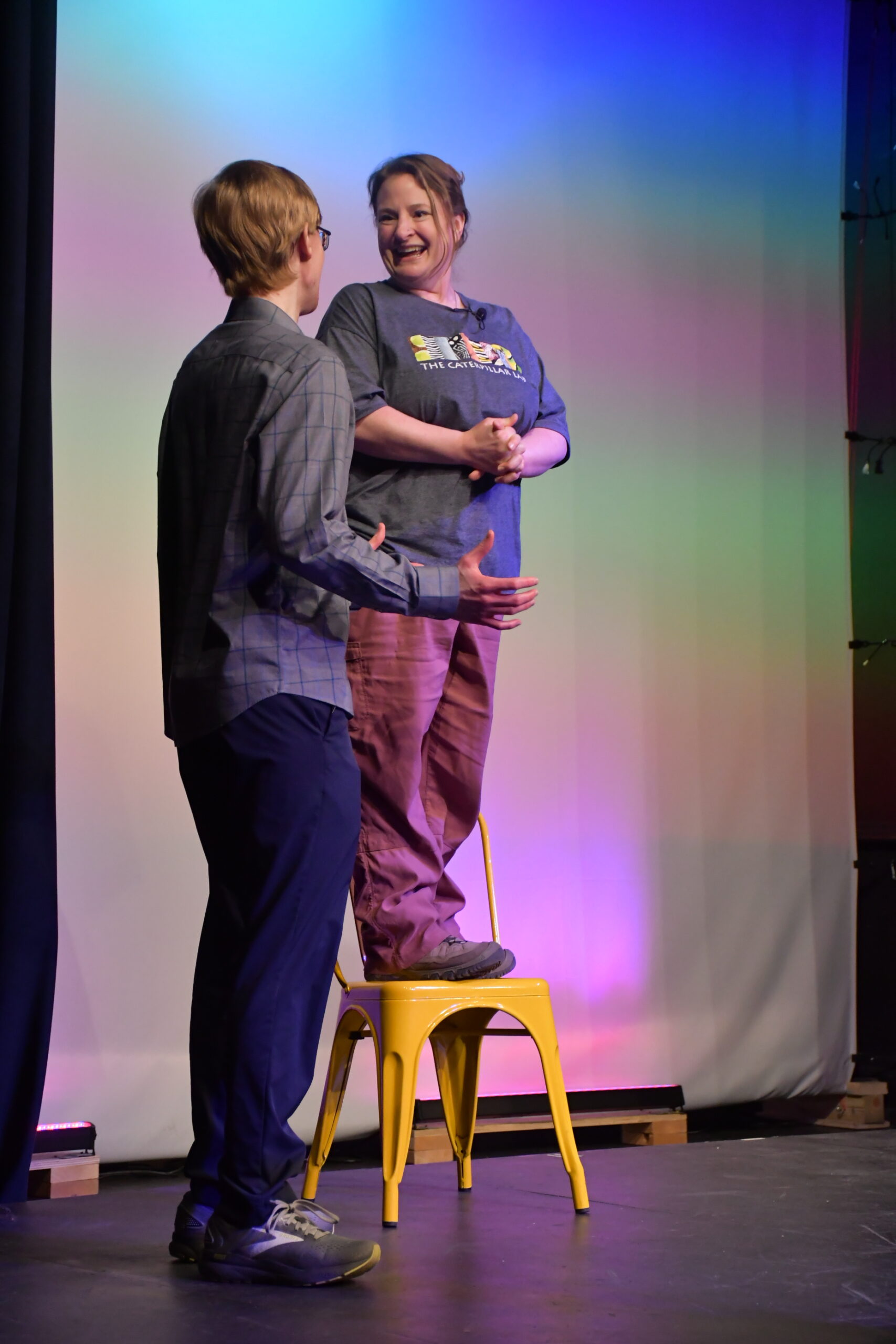
Once a person is awarded the scholarship, they receive eight weeks of free improv classes and get a chance to perform in the 100-person theater on North 10th Street.
So far, the scholarship has had five recipients, including JC Diaz.
“I didn’t know much about improv, honestly,” he said. “I thought improv was like stand-up.”
He hopes the skills he develops in improv — such as thinking quickly on his feet — will transfer to his day job in real estate.
But there’s also a more visceral, immediate pleasure.
“You have so many thoughts throughout your whole day and then when you’re actually doing [improv], you’re saying those thoughts out loud,” he said. “It might be good. It might be bad. It might be funny. It might be naughty. It’s whatever comes to your mind.”
Another round of applications for the scholarship is expected to open this summer.

